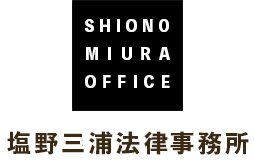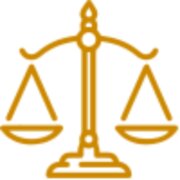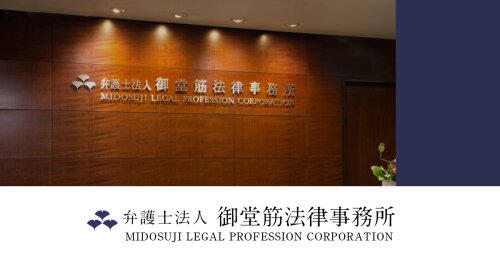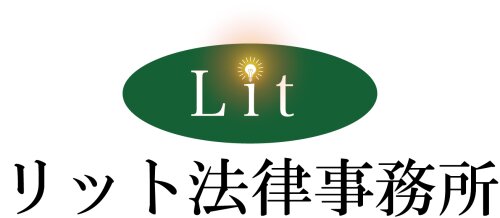Best Aviation Lawyers in Osaka
Share your needs with us, get contacted by law firms.
Free. Takes 2 min.
List of the best lawyers in Osaka, Japan
About Aviation Law in Osaka, Japan
Aviation law in Osaka, Japan, encompasses a complex set of regulations that govern air navigation, airport operations, flight safety, passenger rights, cargo handling, and environmental standards within the region. As the hub of Kansai’s economic activity and home to Kansai International Airport and Osaka International Airport (Itami), Osaka faces various legal challenges related to the rapidly developing aviation sector. The industry is regulated both at the national level, by Japanese law and international treaties, and at the local level, by Osaka-specific ordinances and authorities. Anyone involved in aviation in Osaka should understand these laws, as they affect airlines, pilots, airport managers, commercial operators, and passengers alike.
Why You May Need a Lawyer
There are several common situations where seeking legal help in relation to aviation in Osaka may become necessary:
- Dealing with aviation accidents or incidents, whether as an operator, passenger, or third party
- Aircraft purchase, leasing, importation, or registration matters
- Disputes involving ticketing, baggage, or overbooking for airlines and passengers
- Litigation over cargo loss or damage in air shipping
- Compliance with safety and security regulations specific to Osaka’s airports
- Noise complaints, environmental regulation, and community interaction for airport authorities or airlines
- Employee issues, including pilot licensing and labor disputes in the aviation industry
- Visa issues for crew or passengers in international transit
- Insurance claims after accidents or unforeseen events
- Business interests seeking to launch, expand, or invest in aviation-related services in Osaka
In these and other cases, a lawyer with expertise in aviation law in Osaka can offer essential guidance, advocacy, conflict resolution, and representation.
Local Laws Overview
Aviation activities in Osaka are governed primarily under national Japanese law, such as the Civil Aeronautics Act and the Aviation Law of Japan. These set forth the core rules on flight safety, aircraft registration, and operator responsibilities. However, local entities like the Osaka Prefectural Government and local airport authorities may have additional ordinances and guidelines focused on noise management, environmental protection, airport usage, and coordination with local communities. For example, Kansai International Airport operates under strict environmental controls to minimize its impact on nearby residential areas and marine environments. Osaka also coordinates closely with regulatory bodies such as the Japan Civil Aviation Bureau and the Ministry of Land, Infrastructure, Transport and Tourism (MLIT), both of which are heavily involved in certification, safety, and licensing.
Key aspects include:
- Airport management and usage regulations
- Local noise abatement procedures
- Business licensing requirements for aviation services
- Compliance with national safety audits and operational standards
- Community agreements to address impacts on surrounding areas
- Special rules for international flights and customs clearance
Any party engaging in aviation-related activities in Osaka needs to be aware of these overlapping national and local legal requirements.
Frequently Asked Questions
What are the main airports serving Osaka, and do they have different rules?
Osaka is served by Kansai International Airport (KIX) and Osaka International Airport (Itami, ITM). Each is managed by different authorities and may have specific operational and environmental guidelines. While most aviation rules are consistent across Japan, local procedures at each airport can vary, especially regarding noise control and hours of operation.
Who is responsible for investigating aviation accidents in Osaka?
The Japan Transport Safety Board (JTSB), under the Ministry of Land, Infrastructure, Transport and Tourism, is responsible for investigating aviation accidents throughout Japan, including in Osaka.
How are noise complaints around Osaka airports handled?
Noise complaints are managed by both airport authorities and the Osaka Prefectural Government. Airports have established consultation committees and compensation schemes for affected residents in high-noise areas.
What are the requirements for flying a drone in Osaka?
Drone operations in Osaka are regulated by national Civil Aeronautics Act provisions, which restrict flights near airports, urban areas, and over crowds. Operators often need approval from both national authorities and local government for flights above certain altitudes or in sensitive areas.
Can foreign airlines operate freely into Osaka airports?
Foreign airlines must comply with bilateral air service agreements between Japan and their home countries. They are also subject to clearance from the MLIT and must adhere to all local rules and airport procedures upon operating into Osaka.
What rights do air passengers have in Osaka?
Passenger rights in Japan cover issues like delays, baggage loss, overbooking, and cancellations. Airlines based in or serving Osaka must inform passengers of their rights and procedures for claims according to company policy and Japanese law.
How are airport slot allocations handled in Osaka?
Slot allocations, which determine takeoff and landing timings, are managed by the MLIT in consultation with airport authorities. Airlines need to apply for slots well in advance due to congestion at major airports like Kansai.
What has Osaka done to address environmental impacts from aviation?
Osaka has implemented various noise reduction, fuel efficiency, and habitat protection measures at its airports. These include restricted night operations, modern aircraft incentives, and community feedback systems.
Do private aircraft have any special legal requirements in Osaka?
Private aircraft must still meet all Japanese registration, airworthiness, and pilot licensing regulations. Additional permissions may be necessary for operations in controlled airspace or at busy public airports such as KIX or ITM.
How can disputes over aviation matters in Osaka typically be resolved?
Many disputes are first addressed through administrative channels, such as complaints to airport authorities or governmental agencies. For more complex matters, such as contract or liability disputes, parties may seek mediation or litigation through civil courts in Japan.
Additional Resources
Here are key contacts and organizations that can help with aviation-related legal questions in Osaka:
- Japan Civil Aviation Bureau (JCAB) - For regulatory and licensing matters
- Osaka Prefectural Government - For local regulations and resident relations
- Japan Transport Safety Board (JTSB) - For accident investigation and reports
- Kansai International Airport and Osaka International Airport management offices - For airport-specific concerns
- Japan Federation of Bar Associations - To find lawyers with aviation law expertise
- Ministry of Land, Infrastructure, Transport and Tourism (MLIT) - For national aviation rules, policies, and enforcement
- Osaka Chamber of Commerce and Industry - For business and commercial inquiries related to aviation
Contacting these organizations can help clarify specific regulatory questions before pursuing formal legal assistance.
Next Steps
If you believe you need legal assistance regarding aviation in Osaka, begin by gathering all relevant information and documents, such as contracts, correspondence, investigation reports, and airport communications. Be clear about your objectives, whether seeking compensation, resolving a dispute, or ensuring regulatory compliance. Next, consult with a lawyer who specializes in aviation law, preferably one who is familiar with both Japanese national legislation and local Osaka practices. You can locate such professionals through the Japan Federation of Bar Associations or local law firms with aviation expertise. Many lawyers offer an initial consultation where you can outline your issue and receive guidance on the best course of action. If administrative bodies or airport offices are involved, contact them to attempt resolution before pursuing formal legal action. Remember, aviation law is technical and nuanced, so timely, professional advice can help protect your rights and business interests.
Lawzana helps you find the best lawyers and law firms in Osaka through a curated and pre-screened list of qualified legal professionals. Our platform offers rankings and detailed profiles of attorneys and law firms, allowing you to compare based on practice areas, including Aviation, experience, and client feedback.
Each profile includes a description of the firm's areas of practice, client reviews, team members and partners, year of establishment, spoken languages, office locations, contact information, social media presence, and any published articles or resources. Most firms on our platform speak English and are experienced in both local and international legal matters.
Get a quote from top-rated law firms in Osaka, Japan — quickly, securely, and without unnecessary hassle.
Disclaimer:
The information provided on this page is for general informational purposes only and does not constitute legal advice. While we strive to ensure the accuracy and relevance of the content, legal information may change over time, and interpretations of the law can vary. You should always consult with a qualified legal professional for advice specific to your situation.
We disclaim all liability for actions taken or not taken based on the content of this page. If you believe any information is incorrect or outdated, please contact us, and we will review and update it where appropriate.















